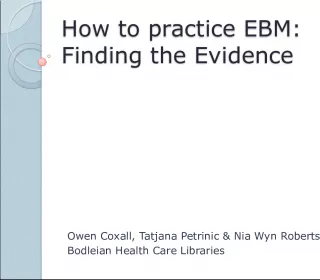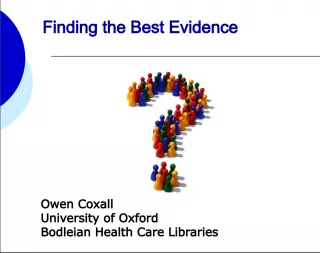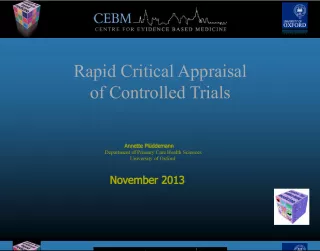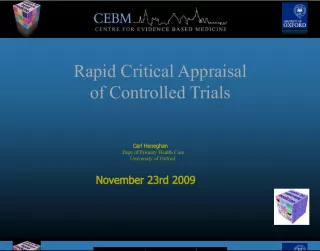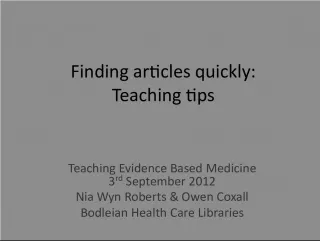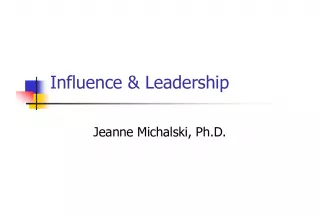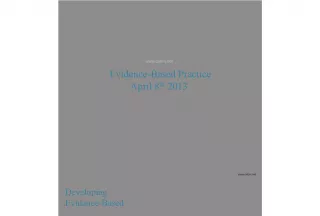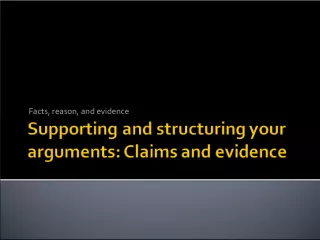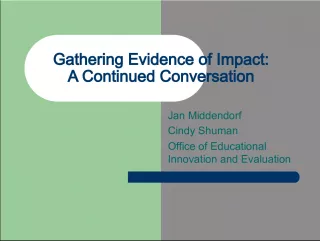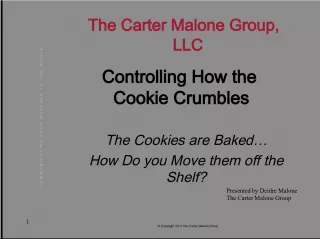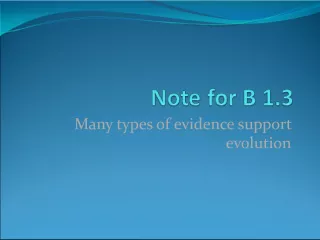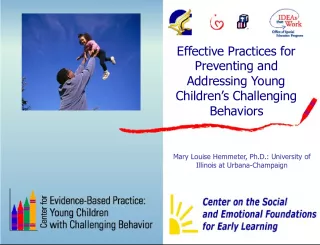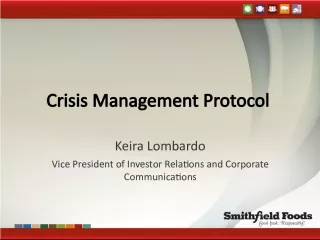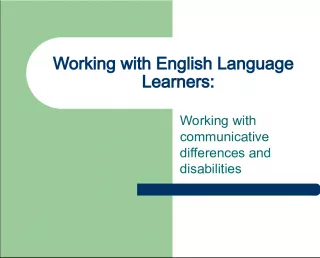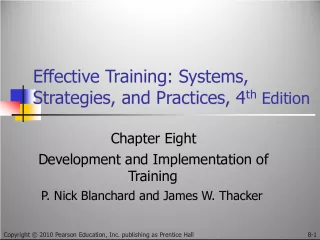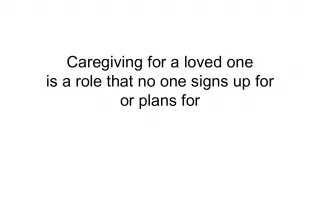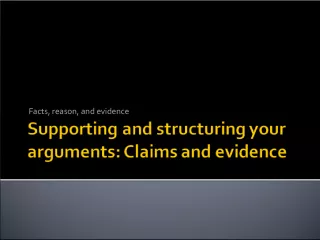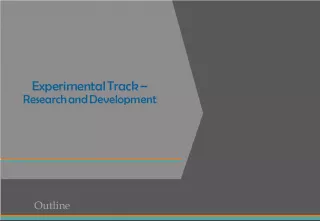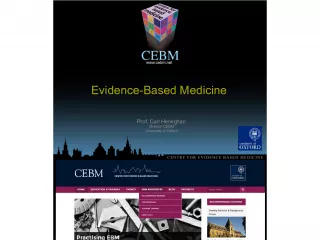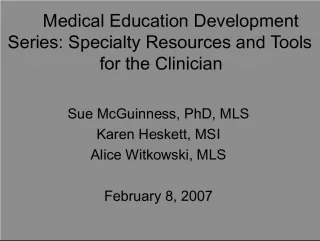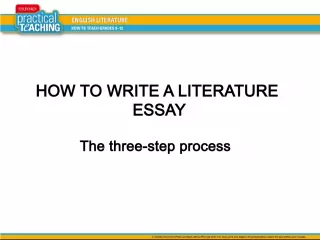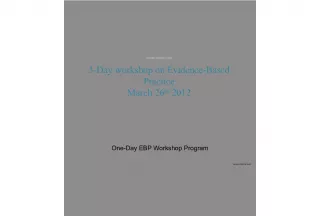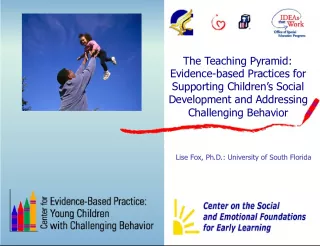Finding the Best Evidence: Strategies for Formulating and Conducting Effective Searches
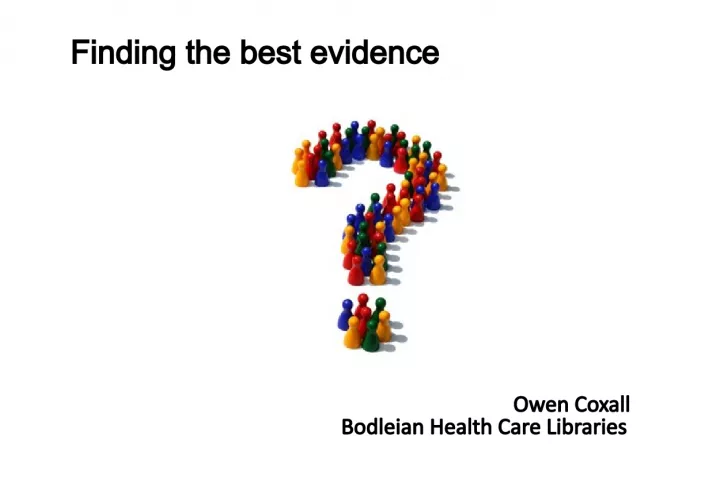

Learn how to formulate a focused question, turn it into a search query, and search databases such as TRIP and PubMed. Discover how to run advanced searches on PubMed and use the Cochrane Library to find high-quality evidence. Use the PICO framework to define your patient, problem, population, intervention, comparison, and outcome.
- Uploaded on | 0 Views
-
 elena
elena
About Finding the Best Evidence: Strategies for Formulating and Conducting Effective Searches
PowerPoint presentation about 'Finding the Best Evidence: Strategies for Formulating and Conducting Effective Searches'. This presentation describes the topic on Learn how to formulate a focused question, turn it into a search query, and search databases such as TRIP and PubMed. Discover how to run advanced searches on PubMed and use the Cochrane Library to find high-quality evidence. Use the PICO framework to define your patient, problem, population, intervention, comparison, and outcome.. The key topics included in this slideshow are . Download this presentation absolutely free.
Presentation Transcript
Slide1Owen CoxallBodleian Health Care Libraries Finding the best evidence
Slide2Session objectives• Formulate a focused question • Turn a focused question into a search • Search TRIP & PubMed • Run an Advanced search on PubMed • Cochrane Library
Slide3Formulate a focussed questionP atient / P roblem / P opulation I ntervention C omparison O utcome
Slide4ScenarioTom , a smoker of 20 years goes to his GP to ask for help with stopping smoking. He’s tried various methods in the past but nothing has worked so far, so asks the GP whether acupuncture might be a good option.
Slide5Our PICOP = Smoking I = Acupuncture C = N/A O = Stopping smoking Is acupuncture an effective way of stopping smoking?
Slide6Quick search: DemonstrationTRIP www.tripdatabase.com PubMed Clinical Queries www.pubmed.gov
Slide7Hands-onFormulate a focussed question – Use your own question – Record the search terms you’re using Run a quick search on TRIP www.tripdatabase.com Run a quick search on PubMed Clinical Queries www.pubmed.gov
Slide8Run a full search strategy: Why bother?Too few results Too many results Irrelevant results Submitting a funding proposal Writing a guideline Conducting a systematic review
Slide9Developing a search strategyTake your PICO and think about: – synonyms – using and/or – phrases – truncation
Slide10Combine terms withOR smoking tobacco Smoking OR tobacco – either term can be present
Slide11Combine terms withAND Smoking AND acupuncture – both terms must be present acupuncture smoking
Slide12Phrases and truncationTake a common word stem and look for spelling variations e.g. ◦ psycho* - will retrieve papers psychosis, psychoses, psychotic…but also psychology, psychological… Phrase searching ◦ Use double quote marks if you want words to appear next to each other e.g. “psychotic episode”
Slide13Develop a search strategyUsing OR then AND to broaden then focus the search P I O smoker* or smoking or tobacco acupuncture or acupressure cessation or stop* or quit* and and
Slide14Perform a search on PubMedwww.pubmed.gov
Slide15Searching tips: PubMedSubject searching - use MeSH – Subject headings added to articles on Medline – Search the MeSH Database Finding similar articles – use the ‘Related articles’ link
Slide16Search the Cochrane LibraryInternational Cochrane Collaboration >90 countries effects of interventions Includes: Full-text Systematic Reviews Abstracts to further SRs and RCTs Available at: http://www.thecochranelibrary.com
Slide17ResourcesCochrane Library www.thecochranelibrary.com PubMed www.pubmed.gov TRIP www.tripdatabase.com Other sources – CEBM web-site – EBM tools www.cebm.net
Slide18HelpFinding the Evidence tutorials: – http://www.bodleian.ox.ac.uk/medicine/information_skills/scr eencasts PubMed – Short online tutorials – Quick guides to PubMed – basics, MeSH search and MyNCBI http://www.nlm.nih.gov/bsd/disted/pubmed.html
